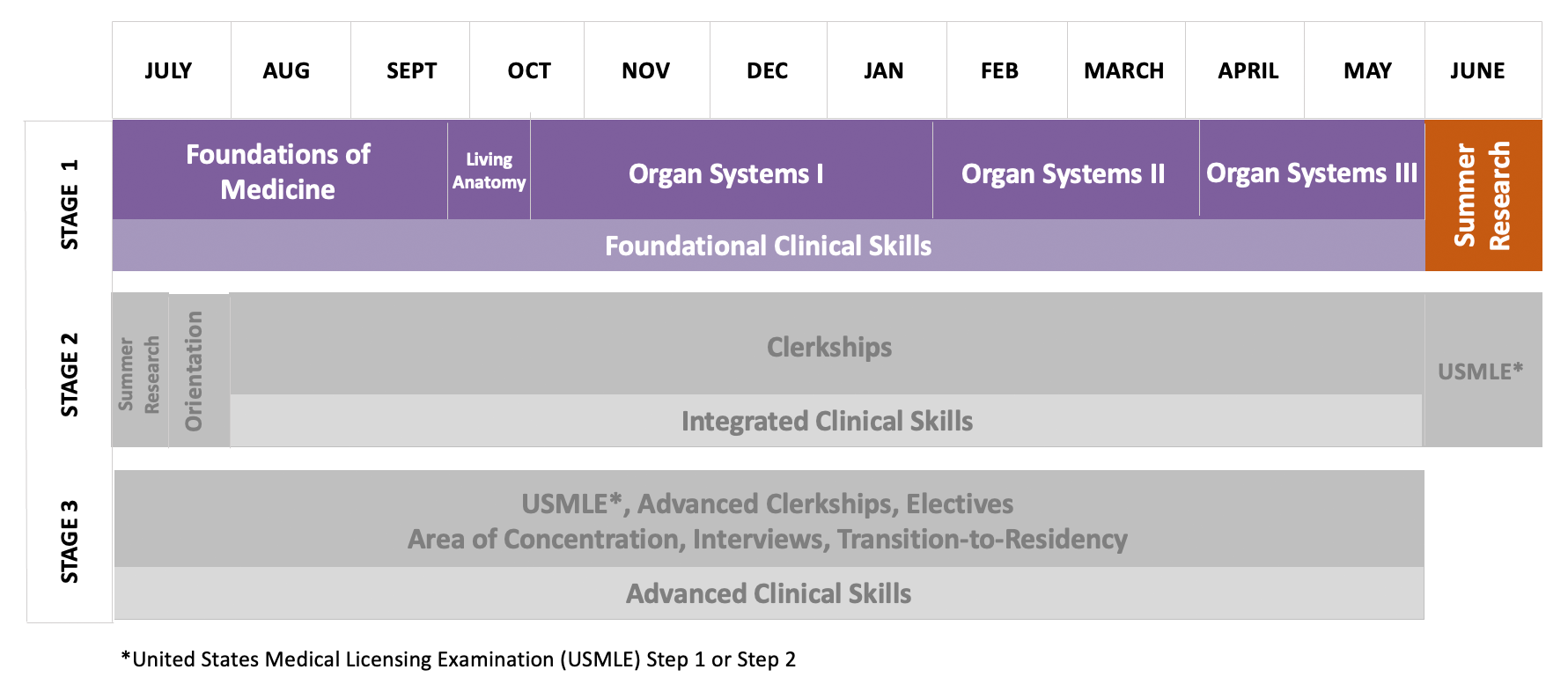
Stage One: Preclerkship Curriculum
Stage one of the MD curriculum at NYU Grossman School of Medicine features 11 months of interdisciplinary modules that cover foundational basic science concepts in biology, anatomy, physiology, and pathophysiology. Preclerkship education includes a concurrent Foundational Clinical Skills module that provides opportunities for students to participate in clinical learning experiences with patients.
This integrated educational experience gives you the opportunity to apply concepts learned in the classroom to real-life patient scenarios. You gain insight into the behavioral and social aspects of practicing medicine that help you develop the necessary skills to interact with patients and other healthcare providers in your clerkships and internships.

Preclerkship Modules
The preclerkship modules you complete during your first year of medical school provide the biological and scientific knowledge you need for success in clerkships and beyond. We integrate overarching educational themes to provide you with a scaffolding for longitudinal learning.
Foundations of Medicine
All students begin the first semester of medical studies with Foundations of Medicine, a module that emphasizes the key basic science concepts that underlie the practice of clinical medicine.
Living Anatomy
The Living Anatomy module is an examination and exploration of the human body through the major regions and systems. Students learn the developmental origins and clinical presentation of anatomy through integration with embryology and medical imaging, respectively. Lectures introduce students to anatomical structures and spaces: their pathways, key spatial relationships and functions. Lab sessions use a multimodal approach to integrate physical and digital learning assets that provide students numerous visualizations of the anatomy for clarity and emphasis. In addition, the clinical application of anatomy is reinforced through formative case-based discussions that highlight key spatial relationships and functions.
Organ Systems Modules
In the first-year Organ Systems Modules, you participate in learning activities that focus on physiology, pathology, and pathophysiology integrated across the following human organ systems:
- cardiovascular
- pulmonary
- kidney
- dermatology
- rheumatology
- gastrointestinal
- endocrine and reproductive medicine
- neurology (brain)
- psychiatry (behavior)
You examine the effects of disease on each organ system and how each relates to the others. As you discover the pathophysiology underlying specific disease states, you develop the problem-solving skills necessary to diagnose and propose treatment options for each.
Foundational Clinical Skills Module
The Foundational Clinical Skills (FCS) module, woven throughout the preclerkship curriculum, allows you to combine concepts learned in the classroom and laboratory with bedside learning experiences. You learn core clinical skills that serve as the foundation for your clerkships, medical training, and practice beyond.
During the FCS module, you focus on bedside diagnosis and clinical reasoning. You also learn various communication and conflict-resolution techniques. Clinical teaching highlights respectful, responsive care that addresses each patient’s needs, preferences, and values. At the conclusion of year one, students have the opportunity to explore various career choices during a six-week summer research opportunity.
Preclerkship grades comprise pass and fail.